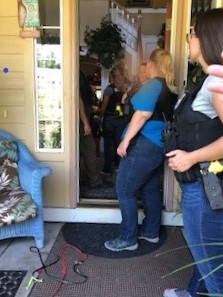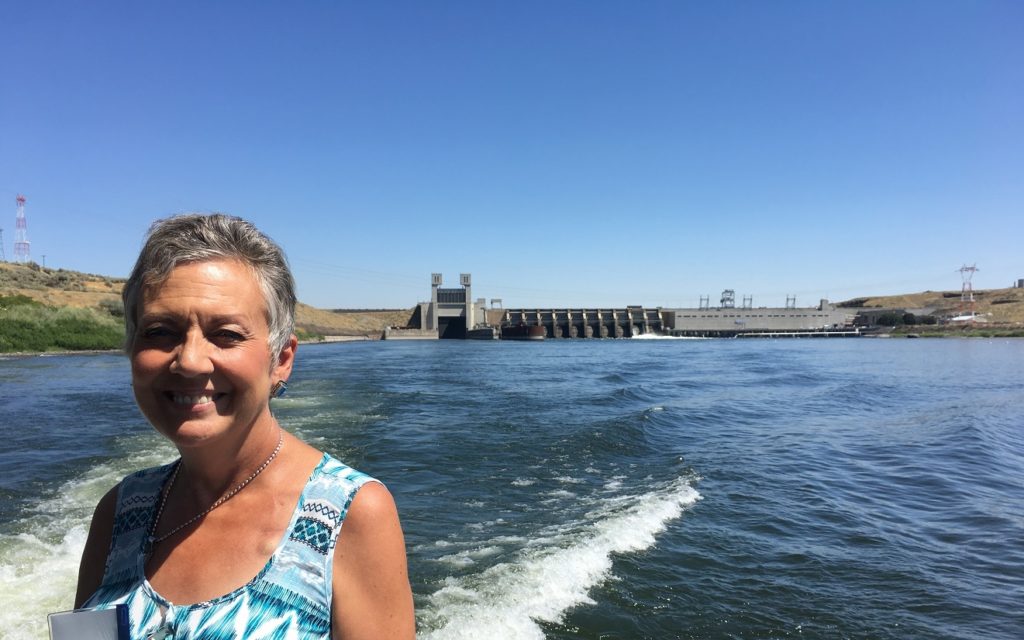Hello Friends and Neighbors,
I hope you’re having a pleasant summer and have found time for some warm-weather fun! I’m keeping my promise to go easy on your e-mail inbox when the Legislature is not in session – but there are a few recent happenings that are worth mentioning.
To start with, most of the laws created during the 2019 legislative session took effect July 28, which was 90 days after the session ended. That timeline is found in our state constitution. I say “most” because some bills include what is known as an emergency clause, and those laws take effect immediately once the governor signs them. The bill that ended the non-resident sales-tax exemption is an example; that law took effect July 1.
One of the laws that took effect July 28 was created by a bill I introduced to address what has been, year after year, the number-one complaint brought to my office. It’s especially familiar in Clark County but is known all around our state: people who license their vehicles in Oregon even though they reside in Washington.
New residents are supposed to switch their driver licenses and vehicle registrations over within 30 days, and failing to do so has always been unlawful. However, someone who is cited could simply pay the fine ($1,529) and continue to ignore the rule. Now violators have the option to pay a smaller fine ($500 instead of $1,529) provided they also change their license and registration(s) over within 90 days of being cited. If they comply the citation is dismissed; if not they face the full fine.
The idea is to give people incentive to stop committing vehicle-license fraud and stop infuriating their neighbors who already do the right thing. There’s more detail here, and I appreciated this recent endorsement of the new law. Just yesterday I met with local law-enforcement leaders about the change, and I still plan to connect with the Washington State Patrol, which also supported my bill.
It’s too bad this law didn’t come along a year earlier. That’s because taking Oregon driver licenses out of the hands of Washington residents also cuts down on the number of people who can sidestep Washington sales tax by still claiming to be Oregonians – an issue cited by majority Democrats in April when they ended the non-resident sales-tax exemption. If my colleagues had recognized in 2018 how my vehicle license-fraud bill could also reduce sales-tax dodging, and made it law then, they might have left the sales-tax exemption alone here in 2019. Instead, retailers in Clark, Cowlitz and other border counties now have to wonder how many shoppers from Oregon they’ll lose because that tax exemption is gone.
For the full list of legislation that made it to the governor’s desk in 2019 – 446 bills plus 19 measures that were partially vetoed and two more that received full vetoes – click here.
Seeing the justice system from an officer’s perspective
As a member of the Senate Law and Justice Committee I’m very interested in seeing the workings of the justice system up close, and recently jumped at an offer to do a “ride-along” with a local community corrections officer (CCO). These are the state Department of Corrections employees who supervise inmates who have been released into the community from DOC facilities.

For a few hours I was a passenger, literally, with a CCO who’s been on the job for 27 years and is accustomed to putting in 60-plus hours per week. That afternoon we checked on three people, starting with a couple who ended up in prison for using and dealing heroin. They’re clean now, in a nice apartment with a dog and expecting a baby, and if you met either one on the street you’d never guess at their history. It was an uneventful visit, in a positive way; I got the sense that their CCO has had a big role in helping them to get clean and stay that way, and that they’re thankful for his support.
The second stop was at the other end of the scale – a young woman who wasn’t complying with the conditions of her release and was to be taken into custody. After her father answered the door and acknowledged she was in the house, one of the other CCOs (they’re pictured) headed upstairs just in time to see the woman crawling into a bedroom to hide. There was a language barrier, the woman was trying to resist two CCOs and conceal drugs at the same time, the room had needles and drugs strewn on the bed. It was a sad scene. After she was handcuffed and put in the car, a search of the room turned up an empty gun case, a box of ammunition and a magazine of ammunition for a rifle. Neither gun could be accounted for – and as a firearm owner who cringes when other gun owners act irresponsibly, I hate to think of what might have happened to those guns considering how addicts will steal and sell anything they can get their hands on to fund their habits.
All in all, it was an enlightening experience that I’ll surely remember the next time our committee takes up topics related to any of this. I’m grateful for the opportunity to learn more about these dedicated folks who do such important work in our communities.
In the field: visiting Snake River dams
The “interim” between legislative sessions is a great time to go out and learn about issues that are before the Legislature. A year ago I was watching sea lions attack salmon at Bonneville Dam and touring agricultural operations to learn about farm-chemical management and safety. This past week I joined several other members of the Senate and House of Representatives for a visit related both to salmon and to farming: a tour of Ice Harbor Dam on the Snake River, outside of Pasco and just up from where it flows into the Columbia.
Ice Harbor Dam (in the background of the photo) is the westernmost of the four federal dams built decades ago on the lower Snake. Together the dams make the Columbia-Snake system navigable all the way from Astoria, Oregon to Lewiston, Idaho, and as a member of the Senate’s committee on Financial Institutions, Economic Development and Trade (FIET), I appreciate what an asset that is to trade in our state. Shipping grain and other commodities by river is more efficient and less polluting than over-the-road hauling, and that’s even before we get to the other benefit of the dams: the clean energy they generate.

For years, however, the federal dams also have been blamed for hindering the survival of wild salmon. By extension, their existence is now viewed by critics as being detrimental to the population of southern resident killer whales (orca) in Puget Sound, which subsist largely on a diet of salmon. I understand why the governor proposed a $750,000 study on the economic impact of breaching or removing the dams, and why the majority side of the Legislature endorsed that in the new state budget – but it sure seems to be a waste of taxpayer dollars because our state has no jurisdiction over these federal facilities.
I’m concerned about our salmon populations for a lot of reasons, including the popularity of Columbia River salmon fishing among 17th District residents, but there are other steps to try – like controlling the sea lions and seals that devour salmon, and upping the production of fish by hatcheries.
Should the issue come before the FIET committee in 2020, I’ll be able to draw from what I learned during this recent visit to the Snake.
I’m frequently out around our legislative district, so if you see me please say hello…and stay in touch during the months left before the Legislature takes up again in January!
Yours in service,











